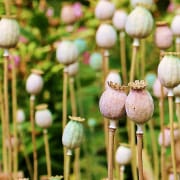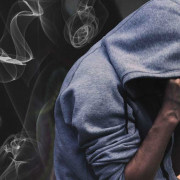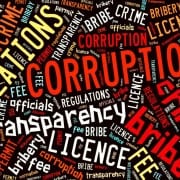|
Getting your Trinity Audio player ready...
|
By Kwazi Dlamini
South Africa, once a preferred holiday destination amongst travellers across the globe, known for its beautiful serene landscape, wildlife, and radiant diversity, is becoming a no-go area because of rising levels of crime. The country currently averages around 70 murders a day and has obtained the reputation of being one of the most dangerous countries in the world.
South Africa’s failure to deal with crime, particularly organised crime, is supported by the most recent ENACT Global Organised Crime Index (GOCI). ENACT is Enhancing Africa’s ability to Counter Transnational Crime and the initiative is implemented by the Institute for Security Studies, Interpol and the Global Initiative.
The GOCI indicates countries’ ability to deal with organised crime and their vulnerability to organised crime, and ranks each country based on these two factors.
For this purpose, ‘organised crime’ is defined as illegal activities, conducted by groups or networks acting in concert, by engaging in violence, corruption or related activities in order to obtain, directly or indirectly, a financial or material benefit. Such activities may be carried out both within a country and transnationally.
The GOCI ranks criminality in 193 countries across the globe in a scale of one to 10, with one reflecting lower levels of criminality and ten representing higher levels of criminality. It also ranks the countries’ criminality resilience – their defence mechanisms – based on a similar scale.
According to the GOCI, the average global criminality score is 4.88 while the average global resilience score is 4.82. The former score offers a glimpse of hope in dealing with transnational criminal organisations – however, that glimpse of hope is lost when it comes to continental and national scores, particularly for Africa and South Africa.
Continent, region, and country
The African continent has an average global criminality score of 5.17, with a 0.20 rise from the previous index published in 2019, while the average resilience score of 3.80 is a slight decline of 0.06 over the same period. This is the second highest criminality score globally, after Asia, and indicates that Africa as a whole needs to assess its vulnerability to transnational crime.
The latest GOCI reflects a South African tug-of-war between criminality and resilience, with the latter score sitting at 5.79 – a 0.21 rise from 2019. South Africa’s organised crime resilience places it at 42nd in the world, second in Africa, and first in the Southern African region.
Similarly, the country recorded a 0.47 rise in levels of organised crime with a criminality score of 6.63. This score puts it at 19th in the world for criminality, fifth in Africa, and first in Southern Africa.
The Southern African region, in fact, may appear to have moderate criminality, with its average score of 4.67 – the lowest in Africa. “However, that does not mean the region is immune to organised crime – far from it.”
In terms of resilience, the region again shows the highest average score on the continent, but, says the report, overall resilience has been negatively affected by Covid-19 and is “quite poor”.
Furthermore, more than three-quarters of countries in the region are assessed as having either non-existent/extremely ineffective or moderately effective anti-organised-crime frameworks. This, says the GOCI, reveals regional countries’ limited ability to withstand and counter the impact of organised crime.
“This lack of resilience makes the region vulnerable to organised crime groups strengthening their grip.”
In the sections below we explore the various categories covered in the latest GOCI as it pertains to South Africa.
Human trafficking
South Africa is found to be a destination country for human trafficking and the problem is prevalent as it is transnational, if not more. Human trafficking in the country takes the form of sex trafficking, forced labour, and others.
While other countries are struggling to deal with sex trafficking – the most common form – domestic servitudes and forced labour are the two predominant forms of trafficking in South Africa. Desperate victims are recruited from poorer and rural areas to big cities with the promise of a better life. There also has been a surge of victims trafficked from neighbouring countries like Lesotho, Mozambique, Malawi, and Zimbabwe. Some of the trafficked immigrants come from as far as Southern Asia.
Weak border control and the corruption market in South Africa makes the country a breeding ground for human trafficking for labour exploitation purposes. Porous borders and the corruption taking place at border posts continues to sow instability and political division in the country.
While this form of human trafficking is a greater threat than sex trafficking, it is not criminally organised but often linked to cheap labour. It also does not usually involve extreme levels of violence.
The smuggling of immigrants into South Africa is usually done through buses and via makeshift foot crossings built by the smuggling networks operating on the borders. Both the South African police and immigration authorities are complicit to this.
Arms trade
The dark days of apartheid saw a huge number of civilians being armed to the teeth in preparation for the struggle against the apartheid government. During the transition period, the majority of these arms remained with civilians and have been used to commit crimes such as murder, and for intimidation. Besides the remnants of apartheid, South Africa has seen an influx of illegal firearms from outside the country, even though this has declined of late, according to the GOCI.
The bigger issue facing the country is firearms stolen either from lawful civilians or law enforcement agencies. Corruption within law enforcement has given birth to a dangerous occurrence of guns-to-gangs, whereby corrupt senior police officials sell state weapons to gangs.
Environment
South Africa is known for its diverse wildlife and natural resources-rich land. Much of this bounty, however, is under threat because of poaching and illegal mining. The poaching of rhino horn remains the most prominent wildlife criminal market in the country but there is a growing appetite for other resources like abalone, pangolin, ivory, and lion bones. Wildlife trafficking can also feature violence and turf wars between criminal networks, as there seems to be a growing market between South Africa and Asia for these illegal goods.
Illegal mining in the country has grown exponentially and like wildlife poaching, is dominated by different gangs who work in dangerous conditions and are often exploited by the criminal networks purchasing and trafficking the products. Corruption Watch recently did a two-part series on the global gold laundering industry and gold mining in South Africa and the role players behind the operation.
The illegal mining gangs are vicious and heavily armed. In the recent past there have been national calls for President Cyril Ramaphosa to act against the gangs as their turf violence began to spill over to innocent civilians who found themselves at the mercy of illegal miners who operated close to their residential areas.
However, the violence in mining is not limited to illegal mining. In the past few years South Africa has witnessed the assassination of environmental activists who oppose mining in certain parts of the country, particularly in KwaZulu-Natal.
Drug trade
The GOCI reveals that South Africa is a known major transit route for drug trafficking because it is easier for drug smugglers to move containers from South Africa to Europe than it is from other countries. These drugs are easily smuggled into the country by air, sea, and land, because rife corruption in access points to the country assists the traffickers.
The heroin trade has maintained a steady growth in the country, surpassing the once popular drug of choice, mandrax. While heroin is cheaper, it has become increasingly dangerous for users.
The drug trade in South Africa is controlled by organised criminal networks originally from within the country and West Africa, with direct links to South Asian networks. However, for drug syndicates to thrive as they are in South Africa, they create connections with local law enforcement. Customs, border, and police officials are reportedly involved in facilitating the distribution and transit of the drugs through the country.
Criminal actors
South Africa is dominated by mafia-style organised crime like drugs and extortion and to a lesser extent, environmental crime. Recently the country experienced a rise in kidnappings targeting specifically businessmen or their family members in exchange for exorbitant ransoms.
The operations of these gangs are identifiable through high levels of violence and they run the underworld. The taxi industry also adds to the violent crime in the country with their known reputation of targeted killings of rival taxi association members, or sometimes even their own association members, in pursuit of power and control. These criminal actors evade the law through bribes to senior police officials and if arrested they still manage to run gangs from prison because of the pervasive corruption in correctional services.
The GOCI further confirmed the long-held observation that South Africa harbours foreign fugitives who flee their countries after committing serious crimes. The report says that South Africa is a favoured settlement destination for foreign criminal actors from Nigeria, China, Pakistan, Israel, and Eastern Europe. Recently, an Israeli fugitive who was on the Interpol’s red list since 2015 for attempted murders, kidnappings and other crimes, was arrested in Johannesburg.
Other factors
Leadership and governance
The stability of leadership and governance in South Africa has worsened in the last 15 years but the current administration has implemented some anti-corruption manoeuvres to root out corrupt officials. These measures, such as the Zondo Commission of Inquiry into State Capture and the proposed establishment of a new anti-corruption agency, are seen as positives in the country’s fight against corruption, white collar crime, and organised crime.
South Africa scores highly in resilience to organised crime because of its high standards in international co-operation. but still faces major problems when it comes to extraditions and mutual legal assistance.
Another reason why South Africa has a high resilience score and simultaneously a high criminality score is because the country has robust anti-organised crime legislation and strong legal framework – but it fails when it comes to implementation of these systems.
Criminal justice
Unlike some other African countries, the South African judiciary is largely independent and free from corruption. However, the prosecution side of things lacks capacity and there have been reports of corruption in the system. Ramaphosa has made certain key appointments in an attempt to remove corrupt officials and clean up prosecution services.
South Africa also struggles with mass corruption within the South African Police Service and other law enforcement agencies and because of corruption at these agencies, the country remains vulnerable to organised crime and transnational human trafficking, drug smuggling, and other illicit trades.
Civil society
Civil society and social justice organisations are active in the country. These non-governmental entities and individuals play a key role in holding the government to account. They operate in different sectors like organised crime, corruption, drugs and gang violence, and others.
South Africa is also one of the few countries, particularly in Africa, which boast free media. Journalists are allowed to perform their duties without fear and they play a pivotal role in exposing organised crime and corruption. While journalists enjoy media freedom, there have been instances where they are threatened for exposing corruption, or experience violence at the hands of the police.
Conclusion
Based on the GOCI analysis of South Africa, the country has not measured up to expectations in terms of dealing with organised crime. While it has all the right legislation and legal frameworks, it faces the pervasive struggle of implementing these, and furthermore lacks the capacity and will for effective implementation.
“If the results of the 2021 Organised Crime Index Africa show one thing, it is that the threat posed by organised crime to a large number of countries in Africa is real and should not, and cannot, be underestimated.”
That almost two-thirds of the continent’s population live in countries with high levels of criminality is testament to that, the report concludes.







